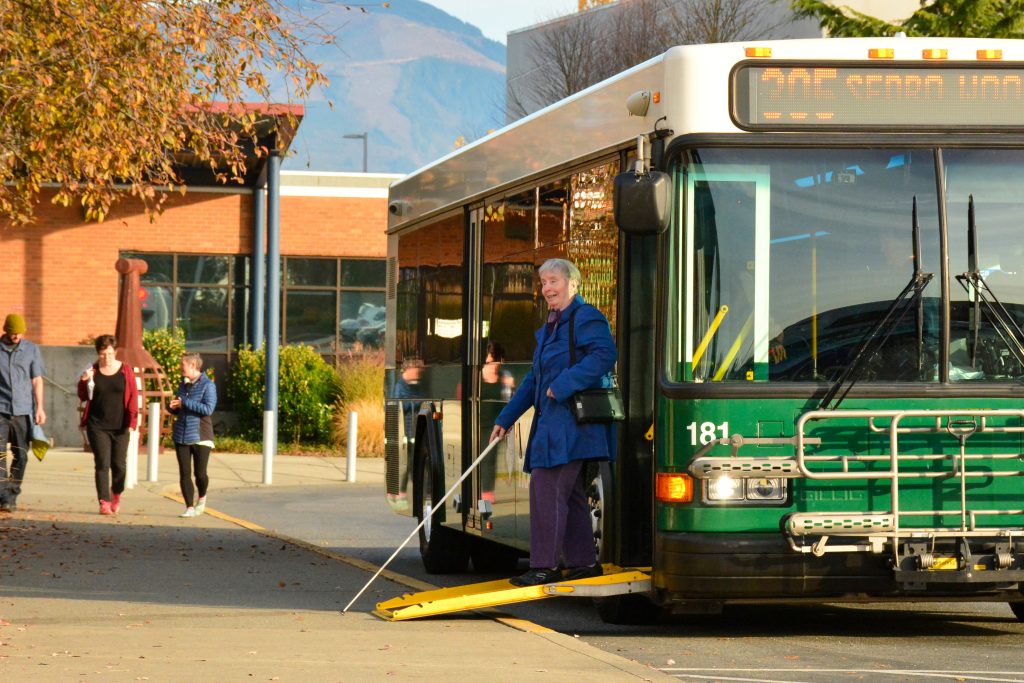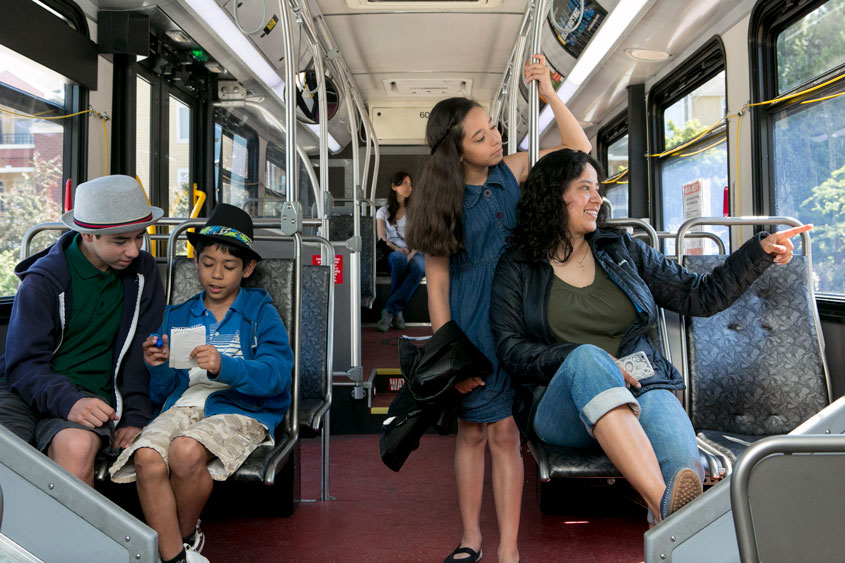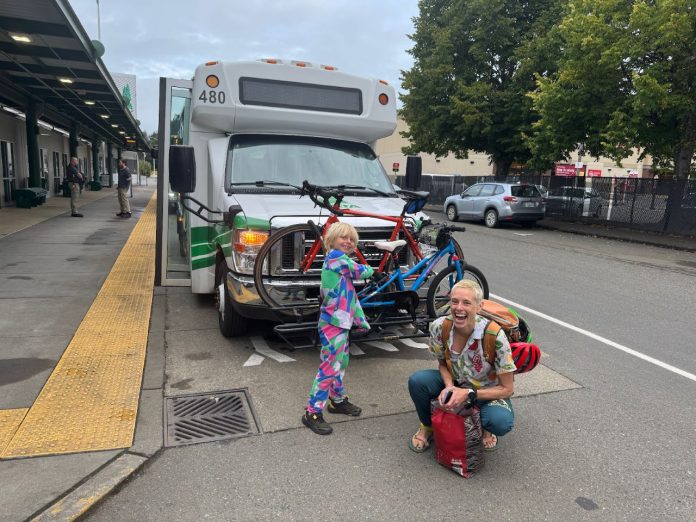I-2117 would repeal the Climate Commitment Act, erasing funding for sidewalks, transit, safe streets, and more. Vote ‘No’ to ensure mobility for all, including nondrivers.
Like a lot of Washingtonians, I took my kid on vacation to the Olympic Peninsula this summer. We rode Mason and Jefferson transit buses to connect from my folks’ home in Olympia up to Port Townsend, and then the next morning rode Jefferson and Clallam transit buses to get to the bike trail near Crescent Lake. Both my kid and I were thrilled to be able to make this — a trip that wouldn’t have been possible without rural transit service.
I grew up in Olympia and was born with a neurological condition that makes my eyes shake and means I can’t see well enough to get a driver’s license. For many years, I lived in New York City because I loved having transit access, but I wanted to raise my kid close to his grandparents, and so I moved back to Washington in 2018.
One of the first things I noticed was how difficult it was to get around Washington. Between regional rail and intercity buses, I felt like I could get to almost any town on the East Coast from NYC. It wasn’t like that in Washington: few inter-city bus options existed, and local transit agency routes were so limited that planning a trip to visit a different part of the state outside the I-5 corridor felt insurmountable.

That has changed in the last six years, but I worry that with the threat of Initiative 2117, critical funding to support transit service across our state will be lost. I-2117 would repeal the Climate Commitment Act, which is a significant funding source for transit agencies across Washington state, currently funding $1.27 billion in transit service support grants.
Without Climate Commitment Act revenue, critical funding for more frequent and reliable bus and paratransit service, for rural and tribal transposition, for much needed transit upgrades, and for free youth fares will be lost.

And I guarantee I’m not the only person who would lose access. On the 6am bus from Sequim to Port Angeles, my kid and I were joined by more than a dozen other passengers. Roughly 30% of our state population are nondrivers, either because of age, disability, income or choice to prioritize other expenses above car ownership. Nondrivers in Washington are more likely to be low-income, female, younger and disabled.
Just because we can’t drive doesn’t mean that we shouldn’t be able to participate in our communities. Reliable transit service makes that possible. It’s important we invest in access and vote no on Initiative 2117 this November.
The Urbanist Elections Committee also endorsed a “No” vote on Initiative 2117. Read the endorsement writeup for more.

Anna Zivarts
Anna Zivarts is a low-vision parent, nondriver and author of When Driving Is Not an Option: Steering Away from Car Dependency (Island Press, 2024). Anna launched the Week Without Driving challenge and directs the Disability Mobility Initiative at Disability Rights Washington, where she organizes to bring the voices of nondrivers to the planning and policy-making tables. Anna sits on the board of the League of American Bicyclists and serves as a member of the Transportation Research Board’s Committee on Public Health and Transportation.

